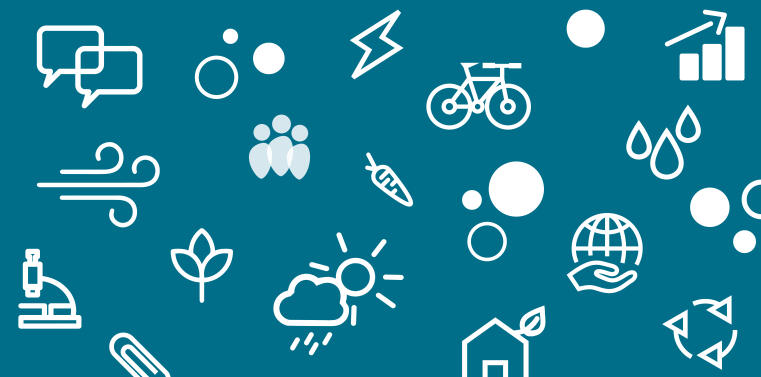

Competency Area: “Sustainability” – Shaping the Future Through Interdisciplinary Competence Development
Sustainability is a complex and multifaceted concept that touches upon every aspect of our society—from economics, politics, and science to civil society and religion. In order to actively participate in shaping societal transformation processes, students must be equipped with the ability to holistically analyze sustainability-related challenges. This requires not only drawing upon, but also integrating, knowledge from various academic disciplines. Such an integrative approach is essential for contributing original ideas and perspectives to social discourse and for shaping change—especially when it comes to making well-reasoned decisions under uncertainty, in contexts marked by conflicting information and incomplete data.
Within this competency area, students acquire key sustainability competencies that enable them to act effectively in a rapidly changing world. The focus is not on thematic specialization, but rather on the targeted development of the following core capabilities:
Systems Thinking and Networked Reasoning: Students learn to identify complex social, ecological, and economic interrelationships and to analyze the interactions between various actors and levels of action.
Inter- and Transdisciplinary Connectivity: By adopting perspectives from other disciplines, students practice engaging with unfamiliar methodologies and concepts, learning to connect them meaningfully with their own subject-specific knowledge.
Futures Thinking and Anticipatory Competence: Students develop the ability to envision possible future developments, compare alternative scenarios, and derive actionable strategies that promote sustainability.
Critical Reflection, Ethical Sensitivity, and Sound Judgment: Students are encouraged to critically examine existing structures and narratives, evaluate values and ethical dilemmas in ecological and social contexts, and develop well-informed positions on controversial sustainability issues.
Empathy and Perspective-Taking: Students cultivate an understanding of diverse viewpoints and, on this basis, the capacity to critically reflect on their own stance and role within sustainability contexts.
Conflict Resolution in Pluralistic Societies: Students build the competence to navigate diversity of opinion and conflicting interests constructively, to collaboratively develop viable solutions, and to support democratic negotiation processes.
Through the development of these competencies, students are empowered to actively engage in shaping transformation processes (transformational potential) and to devise creative solutions to pressing challenges (innovative potential). Accordingly, the courses offered within this competency area may vary widely in terms of content and methodology. A willingness on the part of students to engage with new topics and ways of thinking, to broaden their disciplinary perspective, and to familiarize themselves with methods and key concepts from other fields is essential for gaining the full benefit of participation in this program.
Responsible for competence area 6: Carolin Bohn, MA (FB 06) (Currently represented by Dr. Tobias Gumbert)
Participating faculties and institutes: Center of Interdisciplinary Sustainability Research (ZIN), FB 01, FB 02, FB 03, FB 06, FB 08, FB 09, FB 10, FB 11, FB 12, FB 13, FB 14, Innovation Office (AFO)
